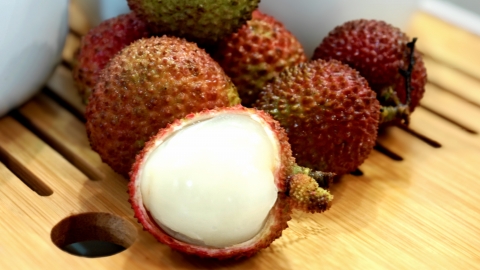Can individuals with Qi deficiency consume lychee?
Generally speaking, whether individuals with Qi deficiency can eat lychee should be determined based on their specific constitution and symptoms. If physical discomfort occurs, prompt medical consultation is advised. Details are as follows:

Lychee is warm in nature and sweet in taste, possessing functions of nourishing Qi and blood, strengthening the spleen, and promoting body fluid production. If the patient's Qi deficiency is accompanied by a weak spleen and stomach, or insufficient Qi and blood, moderate consumption of lychee may help alleviate symptoms of fatigue and low energy caused by Qi deficiency. Its components, such as glucose and vitamins, can rapidly replenish physical energy, and its flesh is moistening without causing excessive dryness, making it particularly suitable for patients with Qi deficiency of the spleen-deficiency type.
However, if Qi deficiency is accompanied by significant Yin deficiency with internal heat, such as tidal fever, night sweats, dry mouth and throat, constipation, dark urine, or internal accumulation of damp-heat, lychee should not be consumed. Because lychee is warm in nature and may increase internal heat, excessive consumption could worsen heat-related symptoms, leading to adverse effects such as mouth ulcers and swollen, painful gums. Additionally, patients with diabetes or Qi deficiency of the phlegm-damp accumulation type should also consume lychee cautiously, as its high sugar content may exacerbate metabolic disturbances.
In daily life, individuals with Qi deficiency should primarily rely on herbal medicine for regulation, with dietary therapy as a supplementary approach. Lychee cannot be used as a substitute for medication.




